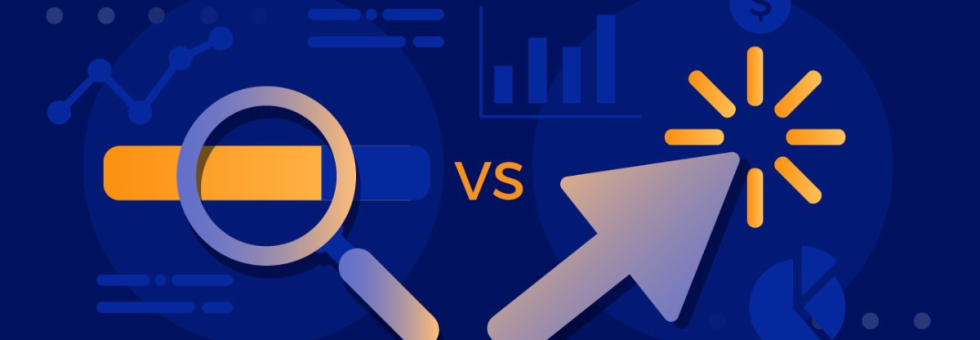Understanding how SEO (Search Engine Optimization) differs from paid search (PPC or Pay-Per-Click) is essential for effective online marketing. Both methods enhance your website’s visibility, but they do so in different ways.
What is SEO?
SEO improves your site’s visibility in organic search results. It focuses on enhancing your site’s relevance and authority to achieve higher rankings without paying for placement. Here’s how:
- Keyword Optimization: Use relevant keywords naturally in your content, headings, and meta descriptions.
- On-Page SEO: Optimize each page for better search results by improving content quality and HTML tags.
- Off-Page SEO: Build backlinks from reputable sites to increase your site’s authority.
- Technical SEO: Improve your site’s speed and mobile-friendliness to enhance user experience and search engine crawlability.
What is Paid Search?
Paid search, or PPC, involves buying ad space on search engines. It places your website at the top of search results through paid ads. Key features include:
- Ad Bidding: Bid on keywords to display your ad when users search for those terms.
- Cost Per Click: Pay a fee each time someone clicks on your ad.
- Ad Quality and Relevance: High-quality ads and relevant landing pages improve ad performance.
- Targeting Options: Target specific audiences based on factors like location and demographics.
Key Differences Between SEO and Paid Search
- Cost Structure:
- SEO: Involves costs for content creation and ongoing optimization. Once your site ranks, traffic is essentially free.
- Paid Search: Requires payment for each click. Costs depend on keyword competition and targeting options.
- Results Timeline:
- SEO: Achieving high rankings takes time, usually several months, as it builds authority and relevance.
- Paid Search: Provides immediate visibility as ads appear as soon as your campaign launches.
- Long-Term vs. Short-Term Benefits:
- SEO: Offers long-term benefits with sustained traffic. High rankings can be maintained with ongoing effort.
- Paid Search: Provides short-term visibility. When you stop paying, the ads disappear, and traffic may decline.
- User Trust and Credibility:
- SEO: Organic results are often seen as more credible by users.
- Paid Search: Ads are marked as such, which can impact user trust.
- Traffic Volume and Quality:
- SEO: Attracts a steady flow of organic traffic over time. High-quality content and SEO efforts can draw relevant visitors.
- Paid Search: Offers immediate traffic with ongoing investment. Quality can be controlled through targeting but may vary based on budget.
Which Strategy is Right for You?
Choosing between SEO and paid search depends on your goals, budget, and timeline. SEO is ideal for long-term growth and sustained traffic. It builds authority and delivers lasting benefits. Paid search is perfect for quick visibility and immediate traffic, especially for time-sensitive promotions.
Conclusion
Understanding the differences between SEO and paid search helps in developing a balanced digital marketing strategy. While SEO focuses on organic growth and long-term benefits, paid search provides instant visibility and targeted traffic. Combining both strategies can effectively enhance your online presence.
Call: 0768644458
Email: [email protected]
Social Media: Facebook || Instagram || Twitter || YouTube || Linked-In

